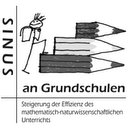Increasing the Efficiency of Teaching in Mathematics and Science Education (SINUS) in Primary Schools
In August 2009, the federally sponsored programme SINUS for Primary Schools was launched in 11 federal states with about 700 participating schools. The programme runs from 2009 until July 2013. The programme's aim is to support teachers in teaching mathematics and science more efficiently.
In Germany, all children go to primary school. These schools have the task of creating a basis for successful learning in German secondary schools and throughout the life cycle.
The concept of SINUS for Primary Schools is based on the approach of the SINUS Programme. This programme was established in 1998 and addressed to secondary schools. SINUS for Primary Schools is the attempt to transfer the conception to a different type of school and a different level of education. From 2004 to 2009, this attempt proved successful.
Teachers participating in SINUS for Primary Schools improve their teaching by focusing on selected questions and problems. Their work is based on ten typical problem areas (so-called Modules). The programme relies on teachers' expertise in teaching and learning and invites them to find tailor-made solutions for teaching problems. Teachers collaborate with their colleagues at the schools. Several schools in the same region form a set. Teachers also cooperate with each other within these sets.
In their work, teachers not only focus on typical problem areas. They also make use of data from scientific evaluations for the improvement of their teaching; they consider different talents and different needs among students and prepare students' transitions to secondary schools.
More information (in German)
